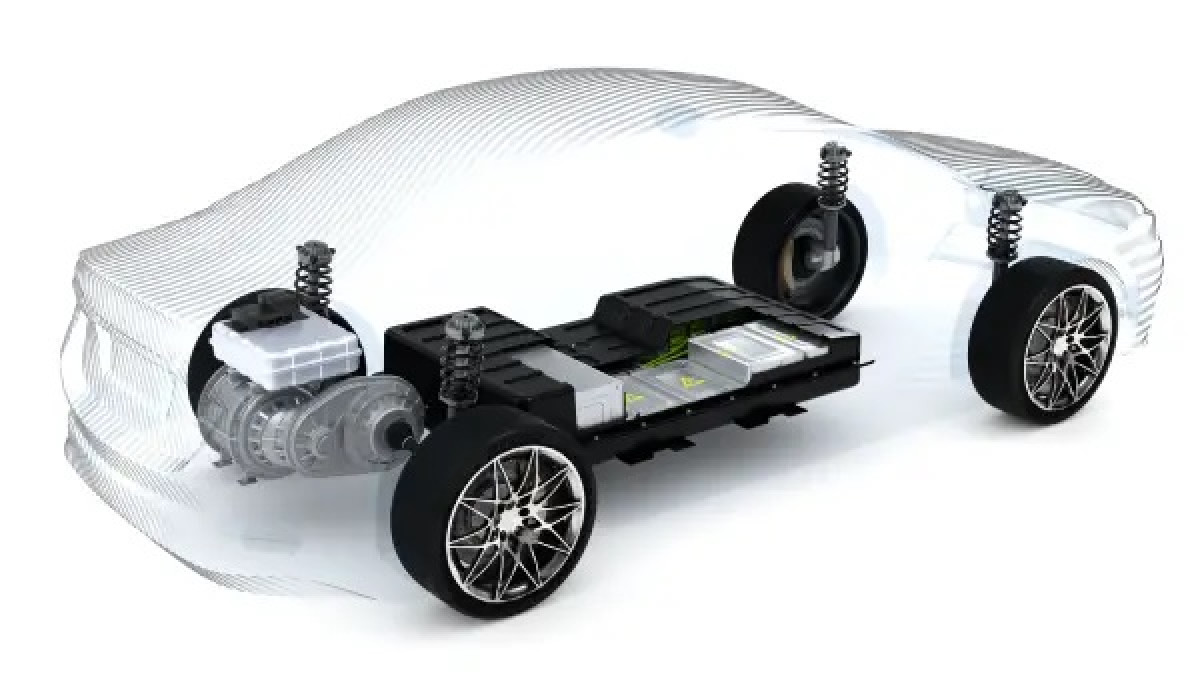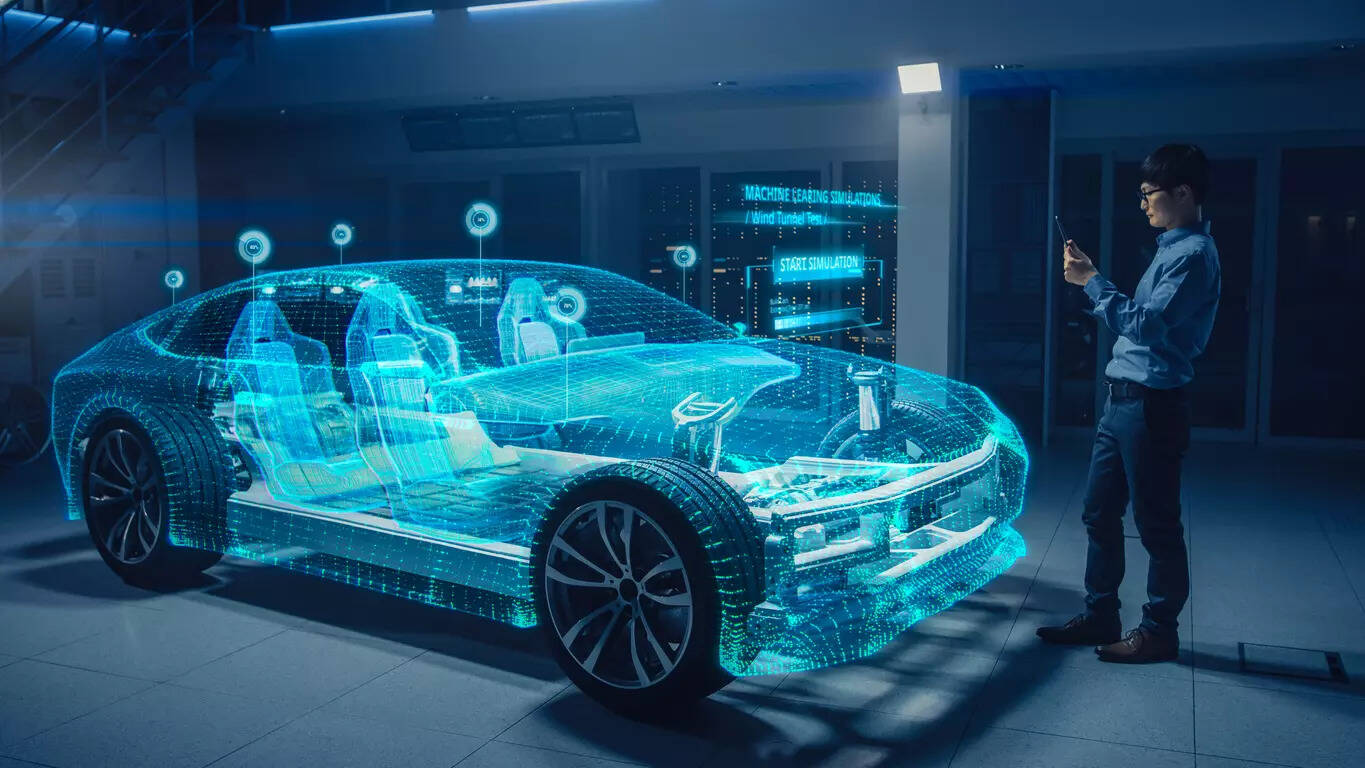As the software content in vehicles grows, with technologies such as smart cockpits becoming a vital part of the auto ecosystem, India has emerged as the go-to name for digital engineering and skills.
According to a recent JP Morgan Equity Research report, India has become the destination for auto OEMs or original equipment manufacturers to secure their digital content needs due to its combination of readily available skilled engineers and ER&D (engineering research and development) hubs that offer low-cost solutions.
The demand has been so great that L&T Technology Services (LTTS), a provider of engineering research and development services, established a delivery centre in Krakow, Poland, last year to suit the needs of a large US-based car OEM. The Krakow location will serve as the heart of LTTS’ efforts in Eastern Europe, potentially providing additional value to the company’s global clients. LTTS has invested $9-10 million on R&D infrastructure for its EACV (electric, autonomous, and connected vehicles) practises alone during the last three years. They have an EV lab at the Bengaluru facility to test solutions more quickly and an electrification and prototyping centre for next-generation solutions in Peoria, Illinois, US, says Amit Chadha, CEO of LTTS.
The need for automakers to transition to EACV is driving them to collaborate with service providers to accelerate product development cycles and ultimate market rollout. According to experts, digital technology solutions such as sophisticated driver assistance systems and software-defined vehicles (SDVs) are assisting in driving this trip.
ER&D services firms assist auto OEMs and tier-1 component suppliers with vehicle product design and development of electric motors, car infotainment systems, and autonomous driving algorithms. Savvy service providers with a solid customer base are investing in and following crucial trends to develop growth prospects. According to Frances Karamouzis, Gartner’s group chief of research, India has moved to the forefront in terms of being the go-to source for digital engineering and an established trusted location. Leading service providers, like LTTS, KPIT Technologies, Tata Elxsi, and Cyrient, are betting on EACV and spending heavily on digital engineering, workforce development, and upskilling.
KPIT has begun to invest in all areas of automotive software. OEMs require a strong partner for software, just as they do for semiconductors or the cloud. This is currently KPIT’s primary topic. Billions of dollars are being invested by vehicle manufacturers that will determine their future business and technology roadmap, says Kishor Patil, CEO & MD of KPIT Technologies, which has made $150 million in acquisitions in this field in the previous several years.
KPIT, which provides automotive industries with embedded software and product engineering services, has established various centres in North America, Europe, and Asia. More than 80% of their work is centred on cutting-edge SDV programmes. According to Patil, they play a critical role in six of the nine SDV initiatives worldwide. As software integration partners, KPIT has partnered with Renault and Honda.

Automobile manufacturers are collaborating with IT service providers to investigate new technological applications. KPIT and ZF, a German business that offers structures for passenger cars and commercial vehicles, have formed cooperation to develop automotive solutions. Capgemini and Audi have started XL2, a joint venture that offers digital technologies in SAP and cloud services.
Tata Elxsi has secured many transactions in the EACV field over the last two years, with Jaguar Land Rover, its largest customer. According to the Auto ER&D Services Primer published by JP Morgan Equity Research in April, its EBITDA margin in this vertical is 30%, notably more significant than its peers due to new product development work and a solid offshore mix.
No effect of the pandemic and hence no reduction in ER&D spending.
Uncertain macroeconomic situations have not hindered auto ER&D spending. EACV is one of the growth drivers, and service providers are securing multi-year contracts in this market. According to JP Morgan research, this might increase India’s contribution of ER&D outsourcing to 33% by FY32 from 25% in FY22. These favourable conditions will assist car ER&D service providers.
According to Pareekh Jain, CEO of EIIRTrend & Pareekh Consulting, the automotive sector accounts for a considerable share of total engineering cost (20%), a significant portion of outsourced ER&D spend (30%), and an even more substantial piece of ER&D transactions (40%). As per recent industry projections, ER&D spending patterns will continue steadfast despite potentially severe macro headwinds, expanding at a 6% CAGR to $2 trillion by 2025.

The renewed emphasis on cutting-edge technologies has had a favourable influence on ER&D offshore, particularly in high-potential nations such as India. According to NASSCOM, the Indian ER&D sector is expected to be valued at more than $63 billion by 2025, with most of these service providers benefiting. LTTS aims to generate $1.5 billion in sales in fiscal year 2025.
Talent Is In High Demand.
Services providers are drawing people from many fields and training them on various operating systems. KPIT Technologies, which recruited 3,800 personnel last fiscal year, is hiring from banking, semiconductor, and technology firms.
Supply of digital engineering expertise continues to outnumber demand. This is a significant driver pushing offshore, particularly in wealthy economies. However, there is a strong tendency to support fostering local talent to fill the void. Companies such as LTTS are extending their operations in Poland, France, Canada, and the United States. They intend to hire over 1,000 local engineering professionals across global centres and in India and expect to hire 500 engineers in the first quarter of FY24, adds Chadha of LTTS.
LTTS, through its Global Engineering Academy, is onboarding new employees across many sites and had 444 training sessions in the previous fiscal year. It has improved the abilities of nearly 4,500 engineers, including those at its Krakow facility. According to Chadha, LTTS has unlocked possibilities by deploying digital technology, which is also generating new investments.
A significant area is creating a robust talent pipeline and equipping Indian firms to harness engineering opportunities. There is a shortage of digital engineering expertise in client countries. This is driving more work to Indian ER&D firms, which are better positioned in that field because of the country’s availability of engineers. Reskilling engineering skills will be critical as technologies progress, particularly in AI and networking.

India is uniquely positioned since no other region can provide corporations with size and cost-effective digital skills. Automotive expertise in the digital field has been developed in India by engineering service providers both in-house and in conjunction with academics. With Indian OEMs and startups launching and ramping up EV programmes, the demand for and availability of automotive skills has increased. Hence, Indian talent is appreciated and valued in foreign lands as well.
Proofread & Published By Naveenika Chauhan




